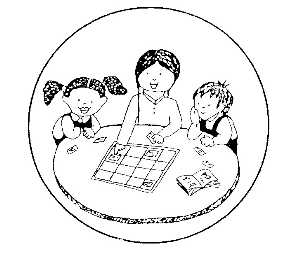
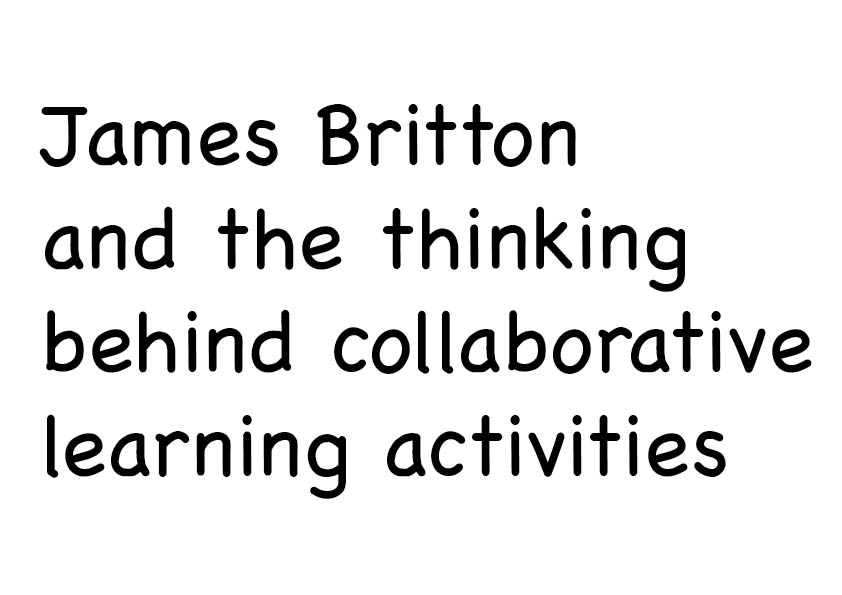
 |
 |
 |
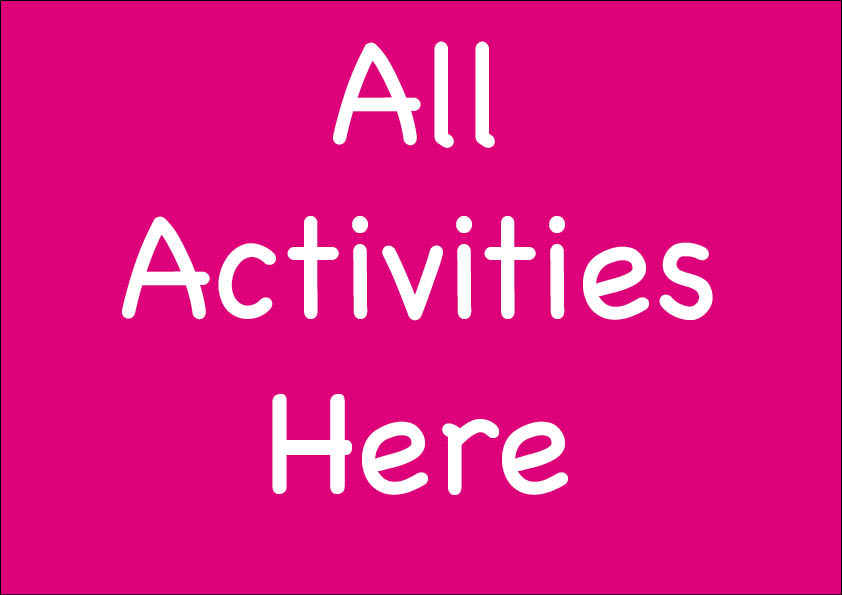 |
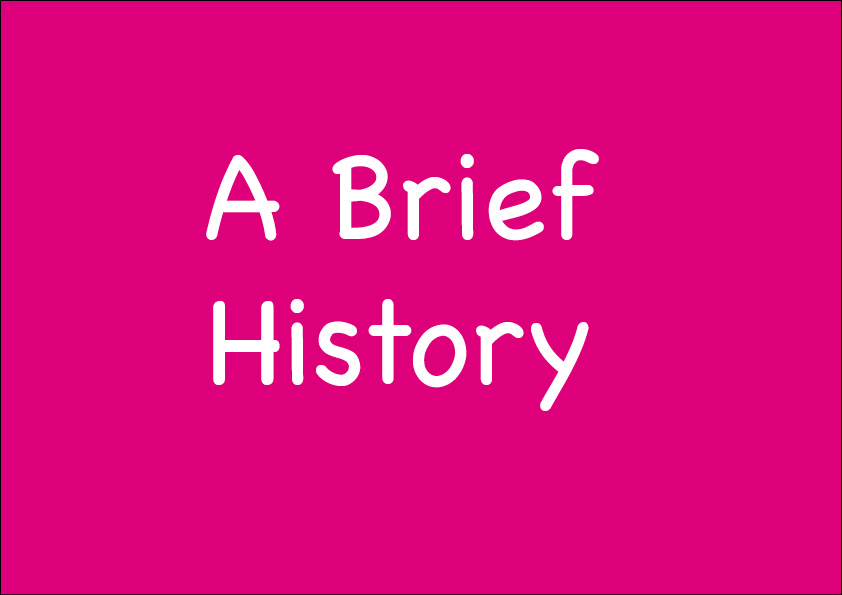 |
 |
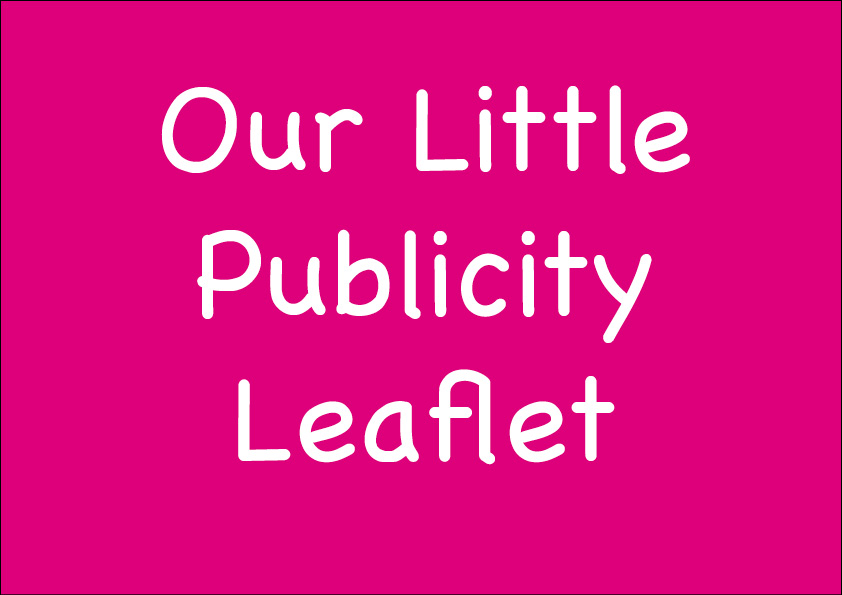 |
 |
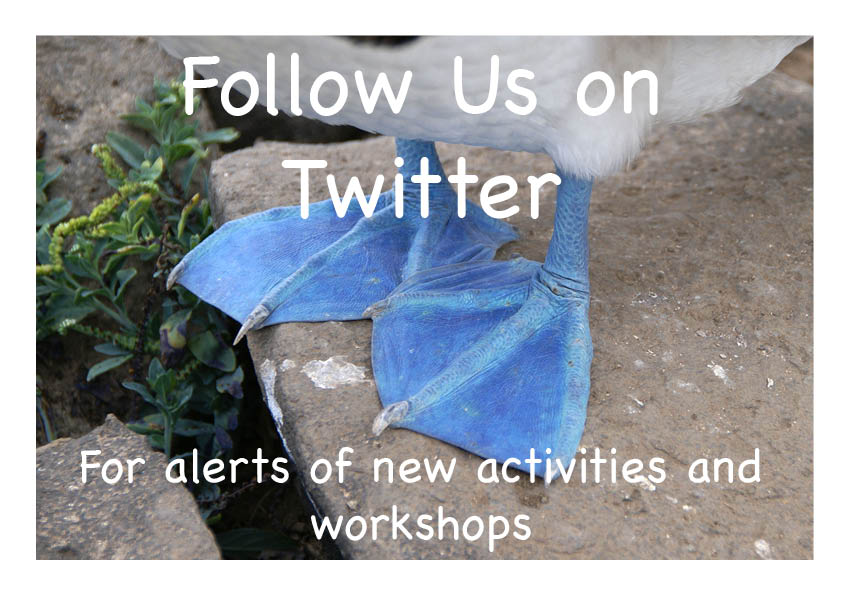 |
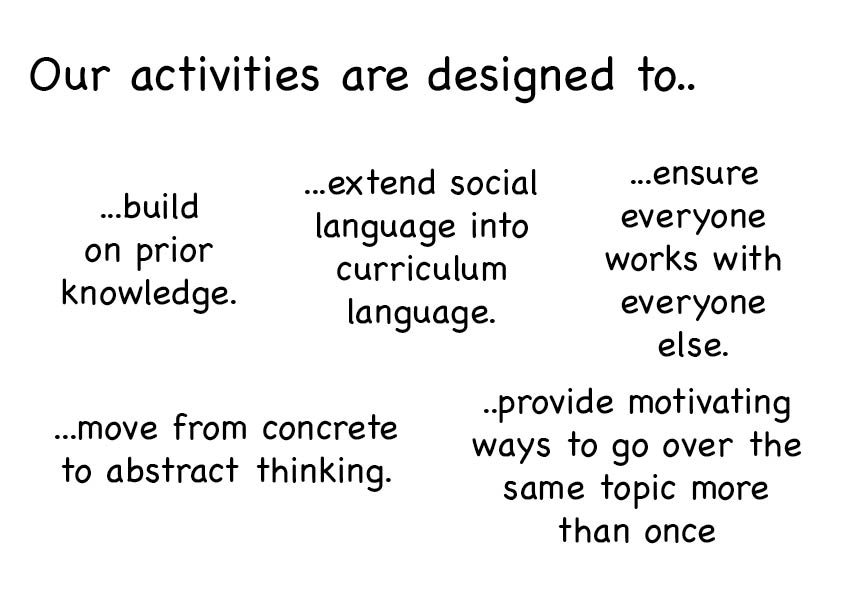 |
| ...build on prior knowledge. | Total acceptance of the language that children bring with them |
| ...extend social language into curriculum language. |
|
| ...ensure everyone works with everyone else. | Using language to make sense of the world Putting this at its simplest, what children use language for in school must be 'operations' and not 'dummy runs'. They must continue to use it to make sense of the world: they must practise language in the sense in which a doctor 'practises' medicine and a lawyer 'practises' law, and not in the sense in which a juggler 'practises' a new trick before he performs it. This way of working does not make difficult things easy: what it does is make them worth the struggle. Language and Learning, p. 130 |
| ...move from concrete to abstract thinking. | In order to accept what is offered when we are told something, we have to have somewhere to put it; and having somewhere to put it means that the framework of past knowledge and experience into which it must fit is adequate as a means of interpreting and apprehending it. Something approximating to 'finding out for ourselves' needs therefore to take place if we are to be successfully told. The development of this individual context for a new piece of information, the forging of the links that give it meaning, is a task that we customarily tackle by talking to people. A Language for Life: The Bullock Report (1975), 4.9 |
| ..provide motivating ways to go over the same topic more than once | "Small circles in which vital and transforming events take place" Walking down Euston Road ten days ago, I was thinking about this occasion and wondering whether ''the age of the classroom teacher'' was altogether too optimistic an idea to be realistic. Then I saw, outside the Friends' House (the Quaker headquarters), a poster which seemed to me as I read it to be putting my thoughts into words. It contained a quotation from Rufus Jones, an American Quaker in the early years of this century: ''I pin my hopes to quiet processes and small circles in which vital and transforming events take place.'' Moving into the 'eighties, into rough waters with plenty of problems, educational, social and political, I am not pessimistic. I pin my hopes to quiet processes and small circles. |
 |
 |
 |
 |
 |
 |
 |